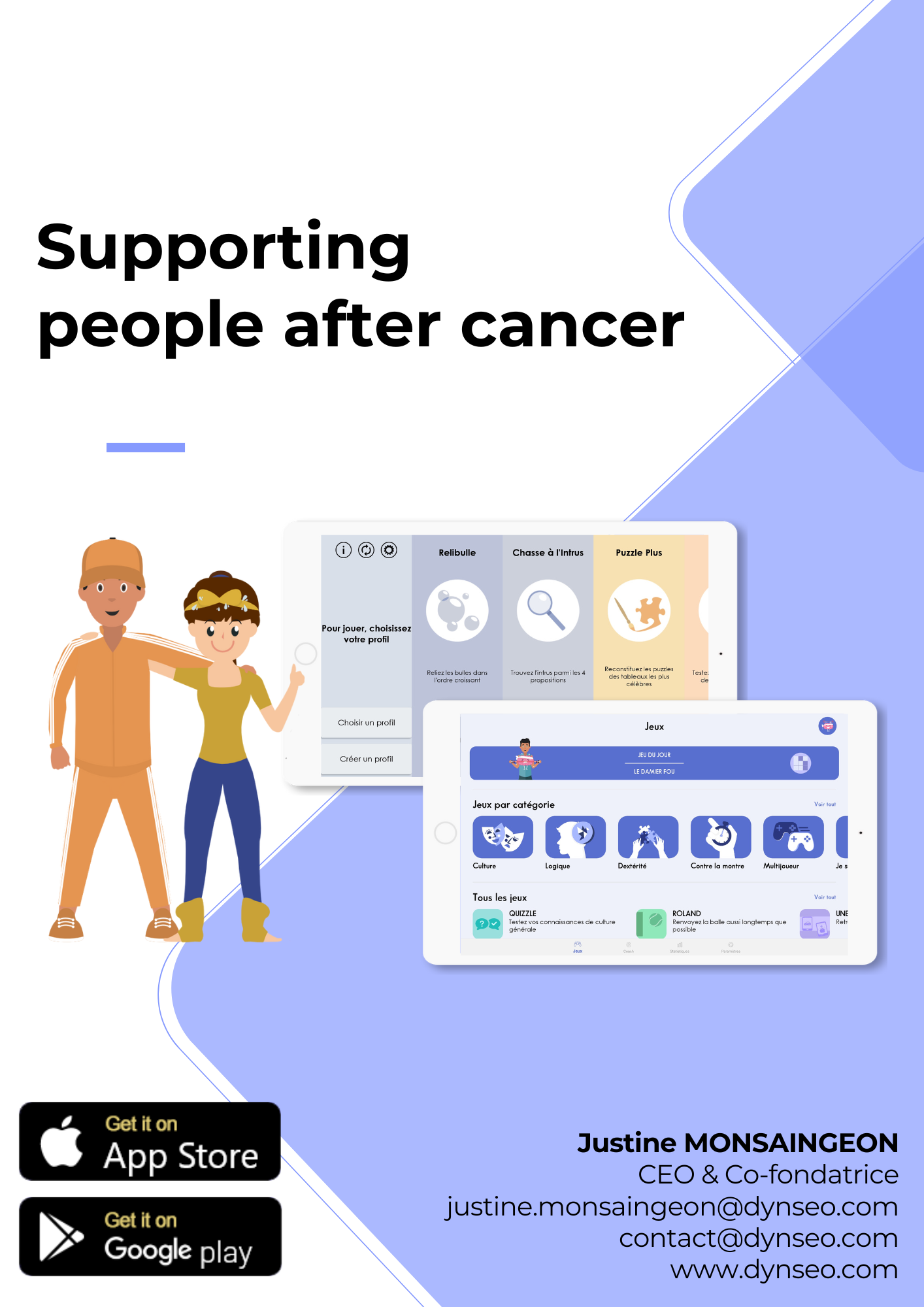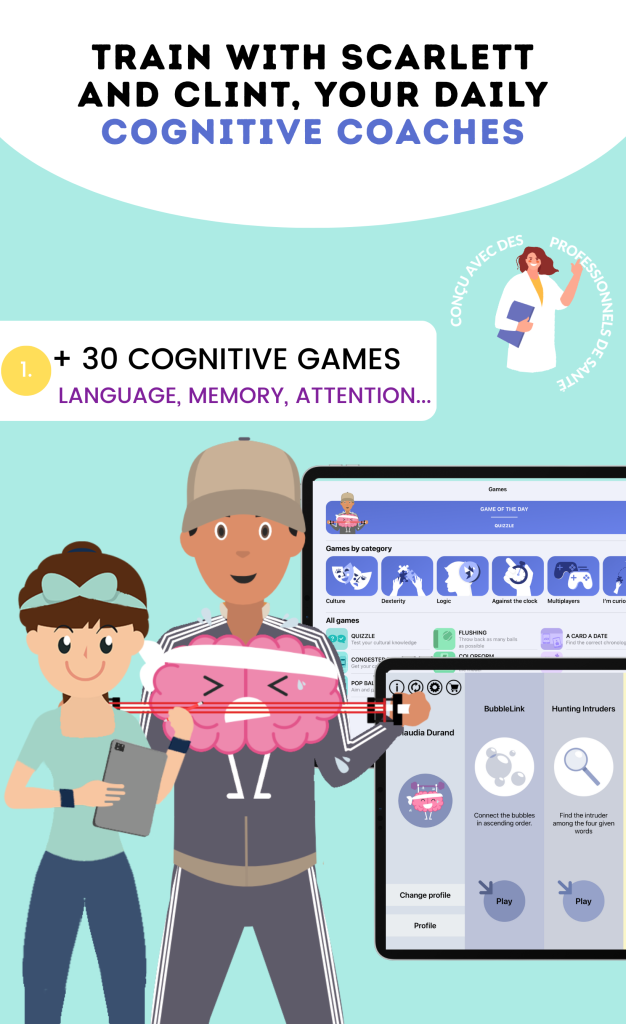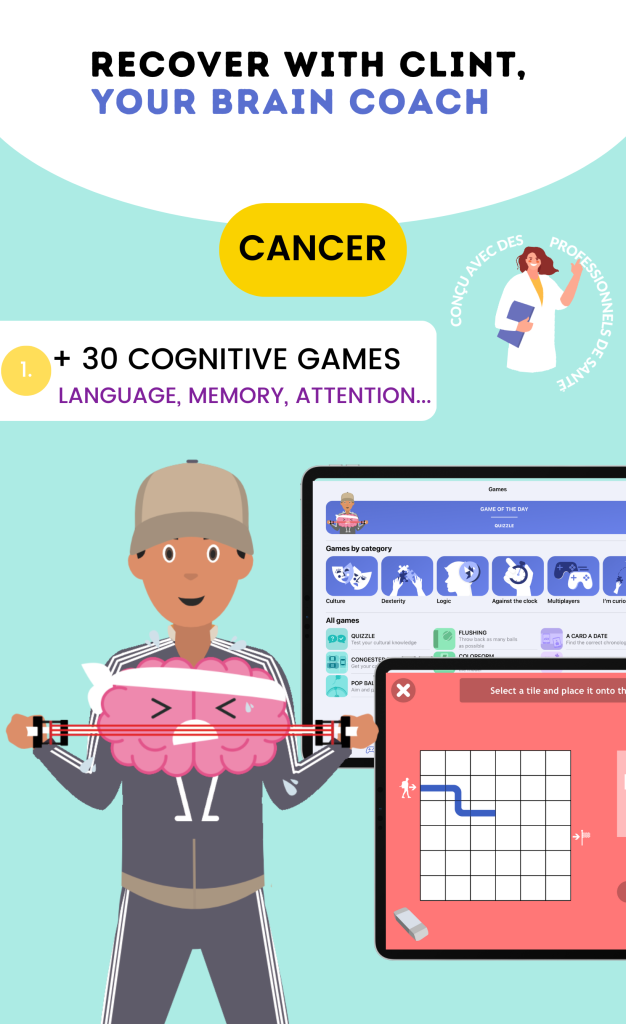Cancer treatment can have numerous effects on the body, including on the brain. Many cancer patients report problems with memory, concentration, and other cognitive functions after undergoing cancer treatment. These effects can be debilitating and have a significant impact on patients’ quality of life. This is why cognitive rehabilitation has become an essential part of the healing process for many cancer patients.
The Effects of Cancer Treatment on the Brain
Cancer treatment, whether chemotherapy, radiotherapy, or surgery, can have harmful effects on the brain. These treatments can damage brain cells and disrupt connections between different parts of the brain. This can lead to problems with memory, concentration, attention, and other cognitive functions.
Additionally, some medications used in cancer treatment can also have side effects on the brain. For example, certain medications can cause fatigue, confusion, or sleep disorders, which can also affect cognitive functions.
What is Cognitive Rehabilitation?
Cognitive rehabilitation is a process aimed at improving cognitive functions in people with cognitive disorders. It is an individualized program designed according to the specific needs of each patient. The main objective of cognitive rehabilitation is to help patients regain their cognitive abilities and improve their quality of life.
Cognitive rehabilitation can include a variety of techniques and activities, such as memory exercises, thinking games, organizational and planning strategies, and concentration exercises. These activities are designed to stimulate the brain and help patients regain their cognitive abilities.
The Goals of Cognitive Rehabilitation After Cancer Treatment
The goals of cognitive rehabilitation after cancer treatment are multiple. First, it aims to improve patients’ cognitive functions, including memory, concentration, attention, and problem-solving. This can help patients regain their independence and resume their normal daily activities.
In addition, cognitive rehabilitation also aims to help patients cope with the emotional and psychological changes that can occur after cancer treatment. Many patients report problems with anxiety, depression, and stress after undergoing cancer treatment. Cognitive rehabilitation can help patients develop strategies to cope with these problems and improve their emotional well-being.
Different Cognitive Rehabilitation Techniques
There are several techniques used in cognitive rehabilitation to help cancer patients improve their cognitive functions. Some of these techniques include:
– Memory exercises: these exercises aim to improve patients’ short-term and long-term memory. They can include activities such as memorizing word lists, repeating number sequences, or solving puzzles.
– Thinking games: these games are designed to stimulate the brain and improve cognitive functions such as problem-solving, decision-making, and planning. They can include card games, puzzles, or video games specially designed for cognitive rehabilitation.
– Organizational and planning strategies: these strategies help patients better organize and plan their daily activities. This can include using tools such as task lists, calendars, or reminders.
– Concentration exercises: these exercises aim to improve patients’ ability to focus on a given task. They can include breathing exercises, relaxation techniques, or meditation exercises.
Healthcare Professionals Involved in Cognitive Rehabilitation

Cognitive rehabilitation is a process that requires the intervention of several healthcare professionals. These professionals can include neuropsychologists, speech therapists, occupational therapists, and clinical psychologists.
Neuropsychologists are responsible for the initial assessment of the patient’s cognitive functions and the design of a cognitive rehabilitation program adapted to their specific needs. Speech therapists work with patients to improve their communication and language, which can also be affected by cancer treatment. Occupational therapists help patients regain their independence in daily activities, such as dressing, eating, and washing. Clinical psychologists provide emotional and psychological support to patients throughout the cognitive rehabilitation process.
How Does a Cognitive Rehabilitation Session Take Place?
A cognitive rehabilitation session can vary depending on the specific needs of each patient, but it generally follows a certain format. First, the healthcare professional will conduct an initial assessment of the patient’s cognitive functions to determine the areas that require rehabilitation. Then, a cognitive rehabilitation program will be designed based on the results of the assessment.
Cognitive rehabilitation sessions can include a variety of activities, such as memory exercises, thinking games, organizational and planning strategies, and concentration exercises. The healthcare professional will work with the patient to help them develop these skills and apply them in their daily life.
Expected Results of Cognitive Rehabilitation
The expected results of cognitive rehabilitation can vary depending on the specific needs of each patient. However, some common results include improved memory, concentration, attention, and problem-solving. Patients may also notice an improvement in their emotional and psychological well-being, which can have a positive impact on their quality of life.
It is important to note that the results of cognitive rehabilitation can take time and vary from patient to patient. Some patients may notice a significant improvement in their cognitive functions after a few weeks or months of rehabilitation, while others may require long-term follow-up to maintain the results.
The Benefits of Cognitive Rehabilitation for Quality of Life
Cognitive rehabilitation can have many benefits for the quality of life of cancer patients. First, it can help patients regain their independence and resume their normal daily activities. This can include activities such as work, leisure, and social relationships.
In addition, cognitive rehabilitation can also help patients cope with the emotional and psychological changes that can occur after cancer treatment. It can provide them with strategies to cope with anxiety, depression, and stress, which can improve their emotional well-being.
Patients Concerned by Cognitive Rehabilitation After Cancer Treatment
Cognitive rehabilitation can be beneficial for all cancer patients who report problems with memory, concentration, or other cognitive functions. This can include patients who have undergone chemotherapy, radiotherapy, or surgery, as well as those taking medications that can affect the brain.
It is important to note that cognitive rehabilitation can be adapted to the specific needs of each patient. Therefore, even if cognitive symptoms vary from patient to patient, cognitive rehabilitation can be beneficial for all.
Resources Available for Cognitive Rehabilitation
Cognitive rehabilitation is an essential process for cancer survivors, particularly those who have undergone treatments such as chemotherapy, radiotherapy, or brain surgery. These treatments can affect memory, attention, concentration, and other cognitive functions. However, well-adapted cognitive rehabilitation can help patients improve these abilities and regain their quality of life. Several resources are available to support this rehabilitation process, whether through programs in specialized institutions, mobile applications, support groups, or other online tools.
1. Cognitive Rehabilitation Programs in Hospitals and Clinics
Many hospitals and clinics offer cognitive rehabilitation programs specifically designed for cancer survivors. These programs are often managed by multidisciplinary teams including neuropsychologists, occupational therapists, psychologists, and neurologists. Patients thus benefit from personalized follow-up according to their specific cognitive needs.
Cognitive rehabilitation centers are specialized facilities where patients can participate in rehabilitation sessions, often accompanied by exercises and activities to improve their memory, attention, and executive functions (such as decision-making and problem-solving). These programs can be intensive and adapted according to the patient’s condition, combining cognitive therapies and practical activities.
2. Mobile Applications for Cognitive Rehabilitation
Mobile applications have become a popular tool for cognitive rehabilitation, as they allow patients to work at their own pace, in the comfort of their home. There are several applications specially designed to help rehabilitate cognitive functions, including memory, attention, and reasoning abilities. These applications offer interactive exercises and games that stimulate the brain and help strengthen cognitive abilities.
Applications such as Lumosity, Peak, and CogniFit are examples of tools that allow users to engage in brain games. These games can be adapted according to the patient’s needs, allowing specific areas of cognition to be targeted. Patients can track their progress and adjust difficulty levels to further stimulate their brain. Additionally, many applications are free or offer trial versions, making them accessible to a wide audience.
3. Support Groups for Cognitive Rehabilitation
Support groups are also a valuable resource for melanoma cancer survivors and other cancers. These groups provide a space to exchange experiences and strategies among patients, while providing important emotional support. Members of these groups can share advice on managing cognitive side effects and on cognitive rehabilitation techniques that have worked for them.
Online support groups, particularly those organized by associations such as Cancer Support Community or Lymphoma and Leukemia Society, allow cancer survivors to connect with other people having similar experiences. These groups are often facilitated by healthcare professionals, such as psychologists or counselors, who bring expertise in cognitive rehabilitation and stress management. Online support groups can also be an excellent way to access additional resources, such as online cognitive rehabilitation programs or recommendations for applications and practical exercises.
4. Online Resources and Specialized Websites
Many websites specialized in cognitive rehabilitation and support for cancer survivors offer resources and programs to help patients improve their cognitive functions. These sites can include detailed information about the effects of cancer and treatments on the brain, as well as recommendations for patients wishing to undertake a cognitive rehabilitation journey.
Professional organization websites such as the Neuropsychological Society or the American Cancer Society provide information on treatments available for post-cancer cognitive deficits. They also recommend specific exercises and therapies, as well as resources for finding therapists specialized in cognitive rehabilitation. Some of these sites also offer forums where patients can ask questions and exchange information.
5. Telemedicine and Online Therapy
Advances in telemedicine have enabled patients to follow cognitive rehabilitation programs remotely. This allows increased flexibility, as patients do not have to go in person to rehabilitation centers or clinics. Sessions can be conducted via videoconference, and patients can receive personalized exercises they can practice at home.
Online platforms such as BetterHelp or Talkspace offer cognitive-behavioral therapy (CBT) services and psychological support, which can be useful for treating the emotional and cognitive effects of cancer. Sessions are led by professional therapists, and patients can benefit from personalized follow-up for their specific cognitive rehabilitation needs. These services are often available by subscription, which allows continuous patient care.
6. Virtual Reality (VR) and Immersive Brain Training Devices
Although less widespread, virtual reality (VR) is an emerging technology in the field of cognitive rehabilitation for cancer survivors. Cognitive rehabilitation programs using VR allow patients to practice cognitive tasks in virtual environments. For example, patients can participate in games where they must solve puzzles or accomplish complex cognitive tasks in an immersive environment.
Virtual reality can be particularly useful for patients with significant cognitive deficits, as it allows interaction with a safe environment while being mentally stimulated. These technologies are being developed in several specialized rehabilitation centers, and their use is likely to expand as new tools become available.
7. Specific Cognitive Training Programs for Cancer Survivors
Some hospitals and care centers offer specialized cognitive training programs for cancer survivors. These programs, often developed by neuropsychologists and cognitive rehabilitation researchers, are specifically designed to treat the cognitive effects of cancer treatments. They can include specific exercises to improve working memory, attention, and planning abilities.
These programs are personalized according to each patient’s needs and can be integrated into post-cancer care plans. Additionally, they often offer continuous follow-up to assess the patient’s progress over time, with adjustments made to exercises based on the evolution of their cognitive state.





